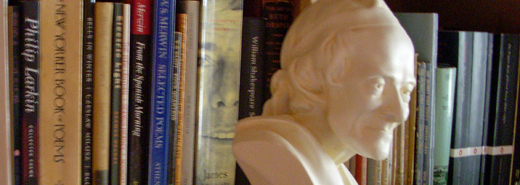The Incidental Humanist:
Schools
How to kick off this feature? Alison Lurie to the rescue! With a fantastic omnibus review of several new books, entitled “The Message of the Schoolroom.” Humanism may not begin at school, but that is certainly where it begins to take its public form. That is where children learn to act independently of family alliances.
The only thing we know about earling schooling so far is that, while there have been brilliant schools here and there, nobody has ever developed a more than half-decent system for educating masses of children on the cheap. I wonder why?
Perhaps independence is overdone:
The traditional grid-pattern classroom limited action and freedom of association; you were supposed to face forward and pay attention, not squirm around and talk to your friends. This arrangement made it hard for students to help each other and discouraged individual assistance, since when the teacher turned his or her back all the suppressed energy in the room tended to break loose. The implication was that you were on your own in the world and could not expect much aid either from your peers or from the instructor. Classroom design and practice also silently taught that you should strive for individual success, winning spelling bees and gold stars and year-end prizes—in other words that, as Americans, you had both the opportunity and the duty to compete and achieve.
In too many academic settings, “cooperation” is called “cheating.” (Maybe that’s why so many kids are slow to grasp the evils of plagiarism.)
Education, like health-care, is afflicted by too many helpers who think of it as a problem in need of a solution. There is no solution, because there is no problem. There are only people growing one way or another, each in his or her own way. Funding personal growth, from teaching Japanese to a second-grader to bringing a sexagenarian back from a degenerative disease, is a “problem” only if you say it is — if you subscribe to a worldview, that is, with other priorities. If, in short, you have been very poorly educated yourself.


Voltaire is wonderfully photogenic. Here is an amusing line from Voltaire, in reference to whether it would be better to be ruled by Louis XVI or by the parlementaires of Paris, who were the first phase of the French Revolution, now known to the historian as the “Nobles Revolution”: “Have they (the magistrates) not often been persecuting and barbarous?…For myself, I think that the King is right, and since it is necessary to serve, I would rather do so under a lion of good pedigree…than under two hundred rats of my own kind